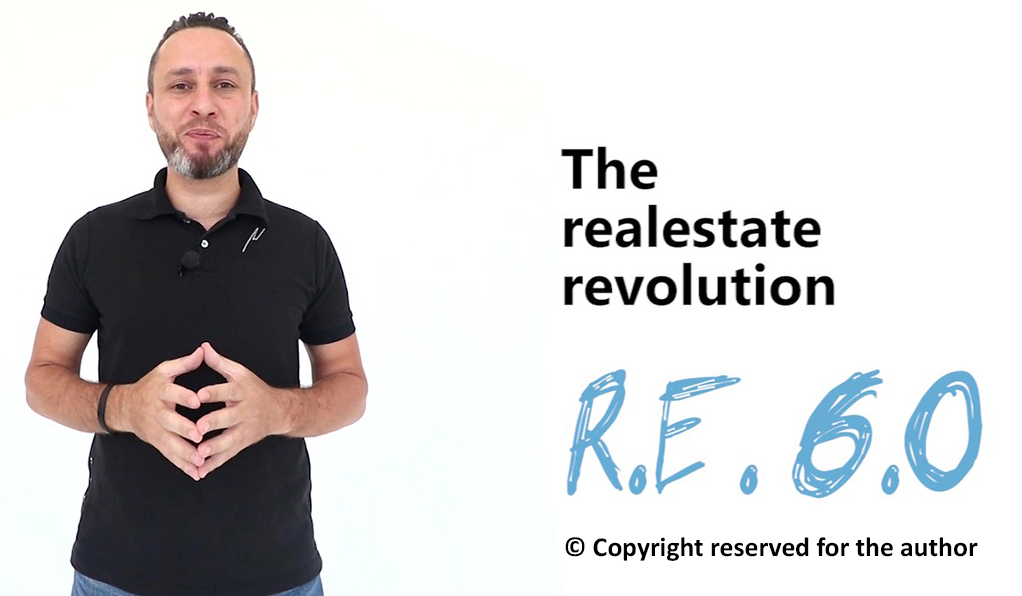“What do we mean by the evolution of a new asset class?”
“Will Real estate, the asset class we know, change?”
“Will the old asset class be replaced?”
“Why aren’t we there yet?”
Let’s answer those questions in the simplest technical terms.
Characteristics of Real Estate the asset class we currently know are:
Advantages:
- Tangibility
- Investment leverage
- Control over management
- Inflation hedge
- Strong returns
- Low risk
Disadvantages:
- Illiquid asset
- Imperfect market / dissimilar product
- High Transaction costs
- Bulky (purchases require lumpsum of cash)
Characteristics of Real Estate 6.0 the asset class we will be introduced to:
Advantages:
- Tangibility (Although connected to a digital token)
- Investment leverage at a much higher rate than the current possible
- No hassle of management
- Inflation hedge (although tech will change the quality of RE as an investment hedge)
- Strong returns
- Low to High risk depending on the amount of leverage used
- Very liquid
- Perfect market / Similar product
- Low transaction cost
- Transparent
- Dissectible / Low entry cost
Disadvantages:
- Volatile
- Risk of ill management
Yes the new evolving asset class is a Super asset class which holds most of the advantages of the current while very little of the disadvantages. Most importantly the new asset class will be one of the most liquid asset classes, one of the most transparent, and one of the lowest barrier to entry. To top it all it is still involves the simple beloved asset people know today.
Here is the story of a man in 2024 achieving a dream he have long believed is not possible.
The man in north Dakota whose net-worth is 18,300 USD, found a good opportunity in a property he dreamt of for so long and only saw in movies, it’s a Park Lane penthouse, so he took it.
Jonny did the purchase through a Singapore based trading desk. Actually he used 13000 USD to purchase tokens worth 1.3 million USD of the asset.
Real estate 6.0 (the new asset class) will not need to replace the current RE asset class we know. Both will coexist with the differences in characteristics. The revolutionary asset class will definitely impact a part of the future of the traditional asset class however will not replace it.
Why are we not there yet? Although we are there with our tech abilities, the legislative framework is not ready, while progressing.
Legislation is one of the biggest challenges.
Legislators will take time to accept that the usually stable asset gets traded (although a new format) overnight. This will impact the asset holders and in a way or another their livelihood.
At the same time real estate transaction fees are a major contributor to a government’s income, and has been charged for historically in a certain manner (lumpsum on purchase and sale). Legislators need to look at the change needed in transaction fee structure as an opportunity rather than a challenge. As per the old rule, a 1000 times a dollar is better than a thousand dollar a one time.
There are encouraging moves from some governments. For example in Dubai the government is not only supporting change but in some ways leading it. Such progressive approach to the opportunity will get other governments inspired & easier to demonstrate to as there is a case study and a working example they can examine. The US market and legislation is a working example on many fronts. Very small moves are required to get Real estate 6.0 fully possible in some states.
The change coming is an opportunity for all stake holders, while humans are known to resist change, this is change that is not only good but inevitable. From my chats with plenty of stake holders and industry leaders it is clear that every one is at least mentally aware that Real estate 6.0 is coming. Many are excited and plenty are contributing to make it a reality.

